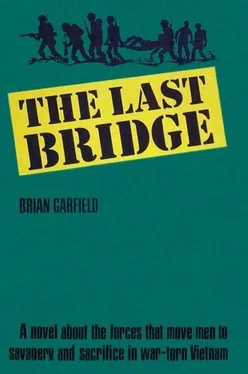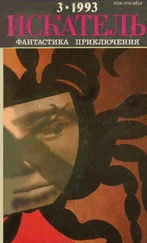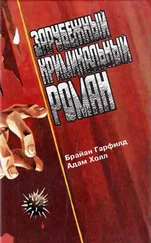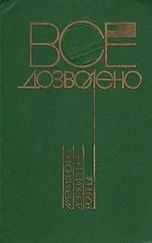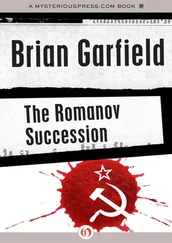“I know all that,” Saville said.
“Sometimes it helps to draw a picture.”
“Okay. What do you figure to do? Make our approach through the tunnel?”
“Exactly.”
“It’ll be guarded. Probably machine gun emplacements at both ends — maybe more than that.”
“Guarded against what?” Tyreen said.
“People like us.”
“But it’s not guarded against trains.”
Saville’s head skewed back. “Trains?”
Tyreen pointed at his drawing. “Tracks go up a steep grade to get to the tunnel. A train going southbound would be slowed to a crawl by the time it got near the top.”
“And you want to play Jesse James and steal a Goddamn train.”
“And rig our demolitions on the engine,” Tyreen said, “and set the whole thing to blow sky-high when it rolls onto the bridge.”
Saville said, “It’s a good plan — a great plan, except for maybe three or four dozen holes in it. David, you must be out—”
Tyreen cut him off: “If it was your tunnel and your bridge, would you expect anybody to try a stunt like this?”
“I guess not.”
“Then they won’t expect it either.”
Saville growled, “What the hell difference does that make? There’s only four of us. And Eddie. How in hell do we steal a train? How do we get on board without anybody knowing we’re there?”
Tyreen pointed across the valley. “The trains stop at the bottom of the grade to take on water. They still use steam engines up here. We jump them at the water tank.”
Saville shook his head. “When the troops up there hear us shooting it out with the train crew, they won’t just scratch their heads and shrug. The minute we fire one shot, they’ll have half the North Vietnamese army up our ass.”
“Then we’ll have to make it our business not to fire one shot,” Tyreen said. He shouldered into his pack and got to his feet. “Time to move out.”
Chapter Forty-two
0415 Hours
The rising sun gave George McKuen no comfort. There was a dull ache along his ribs; the shrapnel cut had not altogether stopped bleeding. He stumbled forward through the jungle, and the dancing light of recklessness was all gone from his eyes. The heavy, sticky rain forest trapped him. Mist cleared slowly out of slimy bogs. The stub-barreled chopper hung across his back on its canvas sling. Both his hands were cut and half scabbed, knotted with cloth. He paced a slow track through fungus and sludge. His mind executed quick, disordered jumps. He felt exposed in the steamy daylight. His eyes sought mines and traps in the earth.
Shortly after dawn he stopped and lighted a cigarette. He pulled up his pants legs and deliberately burned eight leeches off his legs with the end of the cigarette.
His expression was wooden. He had nothing to eat, and he did not know which jungle fruits to trust. The complete silence of the day’s first hour seemed terribly dangerous. The gunsling bit into his shoulder, and he shifted it. He opened his jacket to look at the wound in his side. The wadded cloth against it was rust-brown.
He felt the residue of night chill, but the temperature was climbing sharply. He rolled his pants down and stuffed them into his boots and walked on, threading the jungle without strength or purpose. He knew from the angle of the sun, visible now and then in brief glimpses, that he was heading north. He would go north until he was beyond the mountains, and then he would turn east to the sea. That was as far as his thinking took him.
He came to the river, and it seemed deep and treacherous. Instead of trying to get across, he stayed on the bank and went along the river. He knew the river flowed into the sea. The jungle was too thick to travel the river bank. He had to circle back and forth. Keeping the river in earshot was enough. Perhaps he would come upon a sampan.
He almost stepped on a scorpion. The river was deep and gentle, not particularly noisy. He moved slowly across the patchwork shadows of the forest tops. Footing was spongy, and he had to use his knife continually. It was slow going, and he wished he had a machete. The jungle was lonely and unfriendly, and fatigue, long overdue, had crept into his muscles and heavy-lidded eyes. He stopped reckoning time.
Chapter Forty-three
0830 Hours
Hooker and Khang, stumbling at times, carried the litter. Tyreen walked ahead, stooping to search spots where twigs poked up from the path, where vines across the track might be trigger-threads, where an interwoven mat of fallen twigs and branches might conceal a pit bottomed with barbed pungi stakes. Saville guarded the rear: Saville walked along burdened with his own pack and the heavy sackful of explosives and the radio equipment — and after the second hour’s march, without comment, Saville had taken Tyreen’s pack as well, and Tyreen had been unable to raise the will to object.
It was slow traveling along the trail searching for traps, suspicious of every leaf and vine; it would have been slower yet to break trail through the rain forest.
There was no deadline to speak of Tyreen knew the last freight of the day would reach the water tank late in the afternoon. The night train was a passenger train to Haiphong, and it would not do to hijack a passenger train.
But the hours were enemies, and Tyreen hurried.
He hurried as much as he could — foot-weary, raw-eyed, and weak with malarial fevers. He snapped at the two sergeants to keep up. He snapped at himself when his foot, too heavy to clear a root, snagged and almost toppled him. He snapped at the deceptive twigs and vines and mats of branches on the path. He snapped, under his breath, at Eddie Kreizler, whose head rolled from side to side and whose mouth was pinched grimly shut. He was about to snap at Theodore Saville, but when he looked at the incredible heap of equipment piled on top of Saville he held his tongue.
Squinting and blinking painfully, Tyreen plodded on a slightly down-tilted jungle track and listened to the rasp of his own breathing. He gave himself a reluctant thought. The General will say, “You ought to be shot.” He will be right.
Maybe I will be shot , he thought. He did not overestimate his chances of survival.
He suspected there was a blister on the back of his left heel. He clenched his toes to keep the boot from rubbing. The trail was never visible more than ten feet ahead at most. Moss, vines, trees, ferns, mud, roots, ants and snakes and centipedes and leeches, tangled thorns, thickets of bamboo stalks eight inches thick, the soaked red-black earth — all of it was covered with a thin excremental slime, slightly green, like dirty motor oil.
The temperature was moderate, but in the steamy motionless air he would have sweated violently even without fever. He swallowed salt tablets and canteen water, and his cuffs were sodden from wiping his eyebrows to keep sweat out of his vision.
Here and there, the morning sun streamed through apertures in the treetops. The trail curled back and forth until it stretched out, straight and level, over a distance of twenty-five or thirty feet. The surface was rocky just here. Tyreen swung out of line and waited for the others to pass. “Set him down and take a break.”
Saville came up, big as a Clydesdale. He lowered his load to the ground. He was not even breathing hard. He said, “You may break, but you won’t let yourself quit.”
Tyreen said, “Put pressure on a man, and you begin to find out what he’s worth. It works on the rest of you — it works on myself, too.”
“Most of all,” Saville said. He sat down beside Tyreen. “I wish I knew what in hell you’re trying to prove, David.”
Kreizler was listening. Kreizler’s voice croaked at them: “A pillar of strength, David?”
Читать дальше
